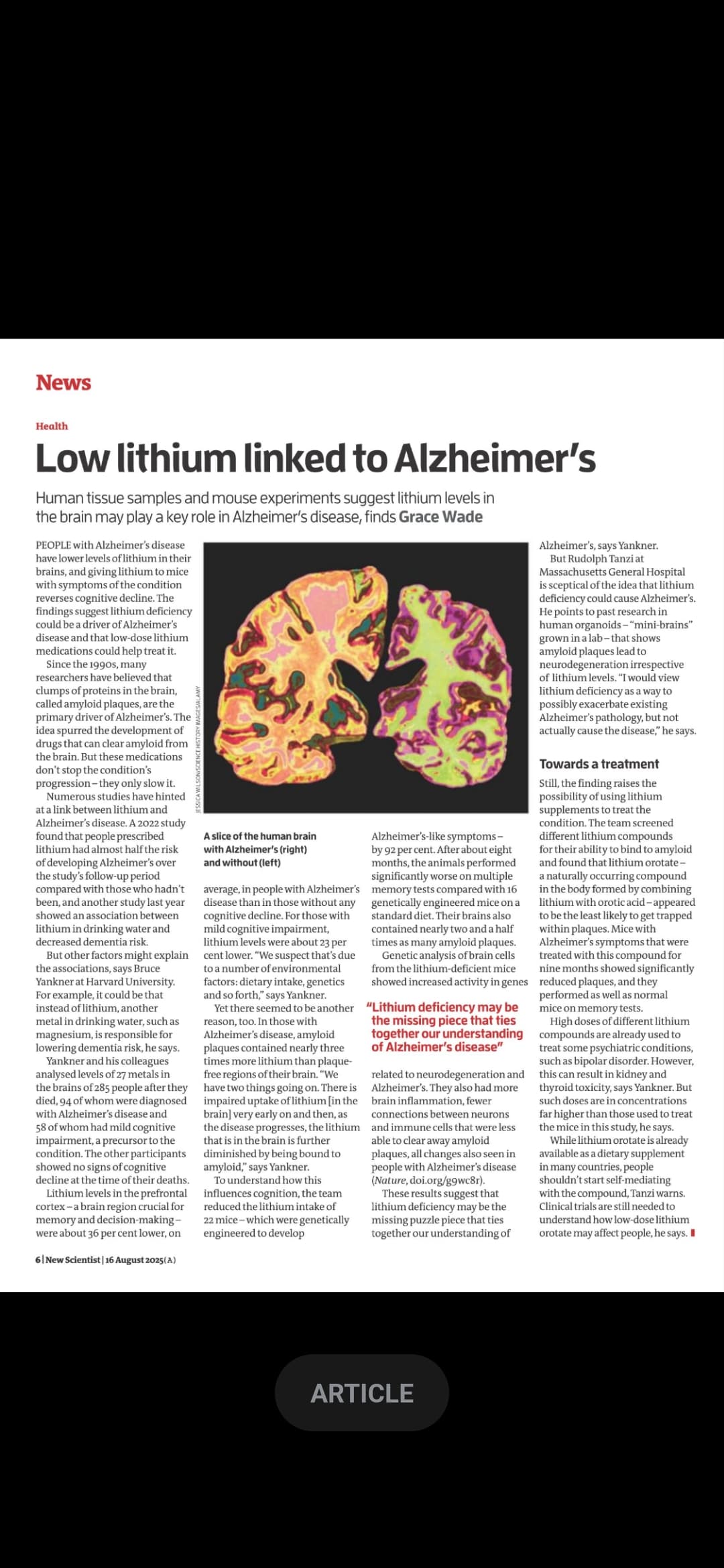Lithium Battery of Tests
Did researchers just find a glimmer of hope in the quest to fight Alzheimer’s? “Seven years of investigation by scientists at Harvard Medical School have revealed that the loss of the metal lithium plays a powerful role in Alzheimer’s disease, a finding that could lead to earlier detection, new treatments and a broader understanding of how the brain ages. Researchers led by Bruce A. Yankner, professor of genetics and neurology at Harvard Medical School, reported that they were able to reverse the disease in mice and restore brain function with small amounts of the compound lithium orotate, enough to mimic the metal’s natural level in the brain.” Research on reversing Alzheimer’s reveals lithium as potential key.
Open access paper:
Lithium deficiency and the onset of Alzheimer’s disease
The earliest molecular changes in Alzheimer’s disease (AD) are poorly understood1,2,3,4,5. Here we show that endogenous lithium (Li) is dynamically regulated in the brain and contributes to cognitive preservation during ageing. Of the metals we analysed, Li was the only one that was significantly reduced in the brain in individuals with mild cognitive impairment (MCI), a precursor to AD. Li bioavailability was further reduced in AD by amyloid sequestration. We explored the role of endogenous Li in the brain by depleting it from the diet of wild-type and AD mouse models. Reducing endogenous cortical Li by approximately 50% markedly increased the deposition of amyloid-β and the accumulation of phospho-tau, and led to pro-inflammatory microglial activation, the loss of synapses, axons and myelin, and accelerated cognitive decline. These effects were mediated, at least in part, through activation of the kinase GSK3β. Single-nucleus RNA-seq showed that Li deficiency gives rise to transcriptome changes in multiple brain cell types that overlap with transcriptome changes in AD. Replacement therapy with lithium orotate, which is a Li salt with reduced amyloid binding, prevents pathological changes and memory loss in AD mouse models and ageing wild-type mice. These findings reveal physiological effects of endogenous Li in the brain and indicate that disruption of Li homeostasis may be an early event in the pathogenesis of AD. Li replacement with amyloid-evading salts is a potential approach to the prevention and treatment of AD.

